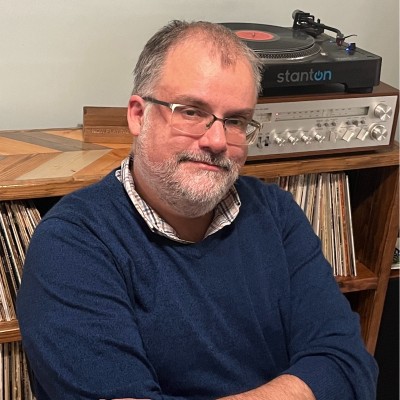
Podcasting isn't a technology problem

This article is at least a year old
A lot of people want to start a podcast these days. And who can blame them? Podcasting is awesome. It’s a tremendously powerful medium for both self-expression and brand building, and also remarkably easy to get started in. The minimum equipment required is simple and inexpensive and the publication platforms are totally open. Drop a few hundred dollars on a microphone, some editing software, and a hosting subscription and bang! The rambling thoughts you recorded in your closet are available to the world, just like that flashy show the big network spent half a million dollars on.
Not surprisingly, this has spawned an entire industry dedicated to helping you launch your podcast. Hardware packages abound, there are almost daily releases of new pieces of software that promise to make the process—from branding to launch to promotion—foolproof and push-button simple, and a global network of workshops and conferences welcome would-be podcasters and promise to give them the tools to succeed.
Unfortunately, I see a deep imbalance in the kind of help being offered, which seems to show an industry-wide misunderstanding of what will make a new podcast successful. We are teaching people how to deliver, but not what to deliver. There is vast attention to systems for logistics, delivery, and marketing, but only a cursory nod to how to make shows that are worth listening to in the first place.
To back this up with data, I looked at the last four large podcast conventions—Podcast Movement 2023 last summer, Podcast Movement Evolutions in January, The Podcast Show, London in May, and Podcast Movement 2024 just about a month ago —and made a list of all the educational sessions held at each. I then categorized each of these sessions by the main subjects covered in them (you can check my work here) in 532 educational sessions across those three conventions, only 68 were (even by the most generous definition) about the craft of audio storytelling.
The pizza store that doesn’t understand pizza
Imagine you aspired to be a novelist. You began attending educational events about book writing, and nearly 90% of the information available to you is about subjects like which word processing software to use, which fonts are most legible, how to schedule a promo tour, and which public relations techniques will get you good blurbs. The clear implications would be that people only judge books by their covers, and that they buy and read anything that is properly formatted and successfully delivered to bookstores. The writing itself—how to structure a compelling plot, create memorable characters, and craft beautiful sentences and paragraphs—is hardly worth any attention at all.
Of course, this is complete nonsense, but it is the message we are conveying to new podcasters every day. As an industry, we are obsessed with the technology of podcasting, but at its heart, good podcasting isn’t a technology problem. Focus on equipment and software can streamline your production process and delivery, but can’t do a thing for improving the product itself.
It’s as if you opened a pizzeria and invested in a beautiful storefront, attractive branding, and a flawless system of delivery drivers, but never bothered to learn how to make pizza. People will soon stop ordering empty boxes.
The current fascination with all things A.I. has made this worse, especially in branded podcasting. “It could all be so simple!” say the purveyors of the shiny new software, “we’ll spit out the podcasts for you! We can write the scripts! We can clone your voice! We can run an automated promo campaign! You don’t even have to show up!” This will make the pizza quickly and with minimum labor and deliver it smoothly and reliably, but it will almost never produce something delicious to eat.
It’s time to develop creative skills
As an industry, we have to develop the creative skills of new podcasters. We cannot assume that part of the process will take care of itself if we solve distribution, discovery, and monetization. Podcasters have to learn to write, to talk, to interview, to edit. These can be developed through hard work, but they do not just happen. To go back to the example of novels, you might buy one book by James Patterson or Danielle Steel or Steven King because it was in-stock and attractively displayed, but the reason people come back to their books again and again is because they tell compelling stories, and they tell them really well. They learned to write and worked on their writing. Only deep enjoyment has the power to hold an audience for years or decades, and only practiced skill can inspire that.
If you’re starting a new podcast, flip the messages you are receiving from the vendors and workshops. Spend 90% (or more) of your initial time and effort on the format and content—what you are going to say and how are you going to organize that information—and as little time as possible on questions like which microphones to buy and which recording and hosting software to use. As you continue, spend at least as much time thinking about what your audience would like to listen to as you do on how to advertise to them. Listen to your own work with a critical ear, and be prepared to make changes—maybe many changes—until you get it right. If you don’t have the knowledge or skill to do this, study and practice. If you don’t have the bandwidth, hire people who do.
Make something delicious—useful, entertaining, clever, and unique—and people will return again and again. Make something dull but well-promoted and the best you can hope for is a flash of initial attention and very little return. Creative quality is the path to long-term success.


































































































